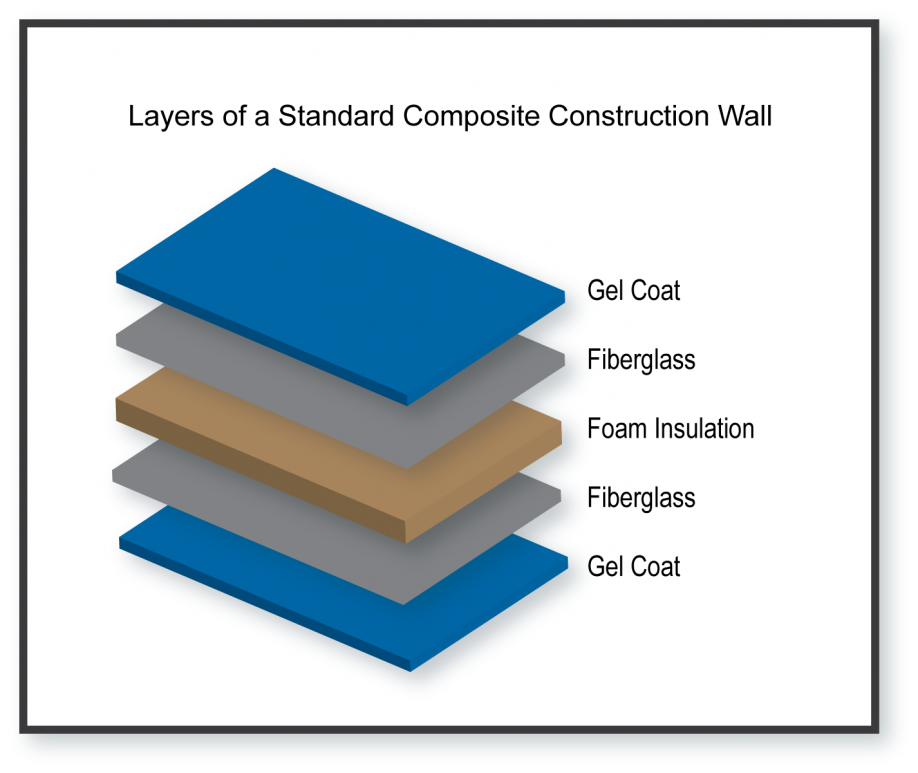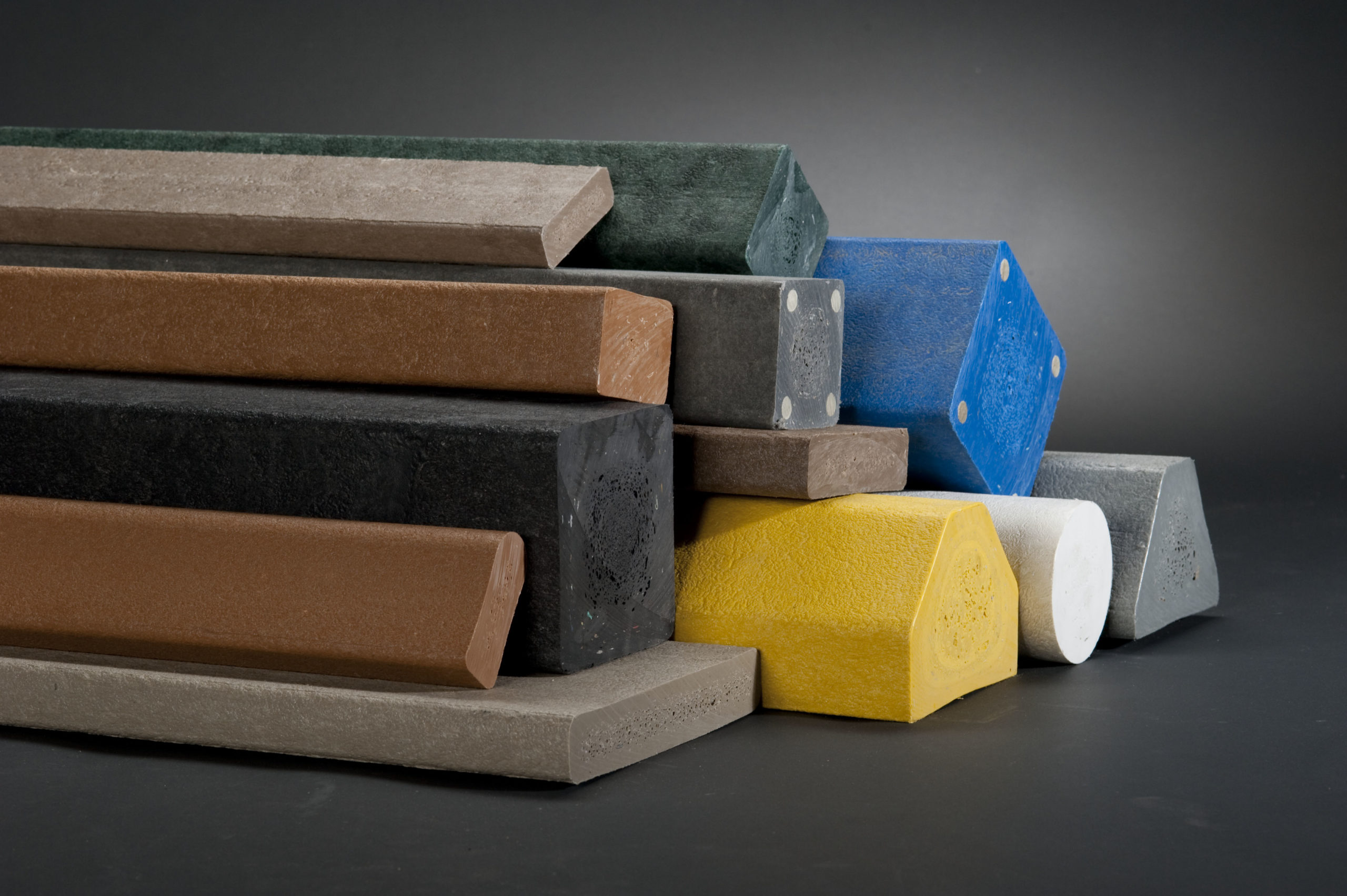Composites: The Future of Sustainable Building And Construction Products
Composites: The Future of Sustainable Building And Construction Products
Blog Article
Exploring the Uses and Advantages of Recycled Composites in Modern Industries
In today's swiftly advancing industrial landscape, the utilization of recycled compounds has amassed boosting focus for its possible to redefine typical manufacturing techniques. The amalgamation of recycled products with advanced composite modern technologies presents an encouraging opportunity for enhancing sustainability, durability, and cost-efficiency throughout different sectors. As markets seek cutting-edge solutions to deal with ecological concerns and boost operational performances, the incorporation of recycled composites becomes a compelling option. This shift in the direction of sustainable techniques not just aligns with global conservation initiatives however likewise supplies a myriad of advantages that hold the secret to forming the future of modern-day production methods.
Environmental Benefits of Recycled Composites
The utilization of recycled compounds in contemporary industries provides considerable environmental benefits, adding to the decrease of waste and the preservation of all-natural resources. By integrating recycled composites into manufacturing processes, industries can decrease their reliance on virgin materials, thus lowering the quantity of waste produced and the energy required for extraction and production. This change in the direction of utilizing recycled composites aids in drawing away products from garbage dumps, minimizing the worry on waste management systems, and lowering greenhouse gas discharges connected with typical manufacturing techniques.
In addition, the usage of recycled compounds promotes the conservation of natural sources such as timber, minerals, and water, which are frequently diminished with the extraction and handling of raw materials (composites). By extending the life expectancy of products through recycling, industries can aid maintain environments and biodiversity by decreasing the demand for brand-new resources. Overall, the fostering of recycled composites in contemporary markets plays an important role in advertising sustainability and reducing the ecological impact of production processes
Enhanced Durability in Item Production
With a concentrate on longevity and effectiveness, incorporating recycled compounds into product production processes improves resilience and sustainability. By making use of recycled composites, makers can produce items that are not only strong however also immune to damage, making them perfect for lasting usage in different markets. The mix of various products in recycled composites can often result in improved toughness and sturdiness contrasted to traditional materials, supplying a cost-effective service for creating durable goods.
Among the essential benefits of making use of recycled compounds in item manufacturing is the ability to tailor the product buildings to meet specific longevity requirements. By changing the make-up and production strategies, manufacturers can tailor the recycled composites to withstand rough environmental conditions, heavy tons, or constant usage without endangering on efficiency. This adaptability in design and manufacturing permits the creation of highly resilient products that preserve their stability in time, minimizing the requirement for regular substitutes and eventually adding to an extra lasting production procedure.
Cost-Effectiveness and Economic Advantages
Incorporating recycled composites right into item production not just boosts sturdiness and sustainability yet also provides significant cost-effectiveness and economic benefits. Using recycled composites can result in minimized product expenses as recycled products are commonly much less expensive than virgin materials. Furthermore, reusing composite products can decrease waste disposal expenditures and decrease the need for garbage dump area, adding to total cost savings for industries.

Technology and Design Adaptability With Recycled Compounds
Using recycled compounds in contemporary sectors offers unrivaled chances for innovation and layout flexibility. Clicking Here By incorporating recycled products into composite manufacturing procedures, firms can press the limits of traditional design restraints and explore brand-new opportunities. The convenience of recycled compounds enables for the creation of complicated shapes and structures that may not be achievable with conventional materials.
Among the vital benefits of recycled composites is their capacity to be built into numerous forms, providing designers the liberty to explore unique sizes and shapes. composites. This flexibility opens a world of imaginative chances, making it possible for the development of lightweight yet sturdy items that meet the particular demands of different markets
In addition, the use of recycled composites promotes lasting techniques and supports the circular economic climate by reducing waste and lessening the ecological impact of making procedures. This concentrate on green design options aligns with the expanding pattern in the direction of sustainability in modern industries, making recycled composites an important source for forward-thinking and innovative check this business.
Applications Throughout Various Industries
Recycled compounds discover impactful and diverse applications throughout a wide array of industries due to their special buildings and sustainability advantages. The aerospace sector benefits from recycled compounds in the production of airplane parts, where the materials' strength-to-weight proportion is essential for guaranteeing safety and performance. The convenience and sustainability of recycled composites make them useful throughout different industries, driving advancement and ecological stewardship.
Final Thought
Finally, the utilization of recycled composites in modern sectors offers considerable ecological advantages, improved sturdiness in item manufacturing, cost-effectiveness, and financial benefits. The usage of recycled composites allows for development and style versatility throughout numerous industries. In general, the fostering of recycled composites presents a sustainable and functional service for satisfying the demands of the sector while also reducing environmental impact.

One of the crucial advantages of making use of recycled compounds in product production is the capacity to tailor the material properties to fulfill certain sturdiness demands. Utilizing recycled compounds can lead to reduced material prices as recycled materials are typically less pricey than virgin materials. The aerospace sector benefits from recycled compounds in the production of aircraft parts, where the materials' strength-to-weight proportion is critical for making sure safety and performance.
Report this page